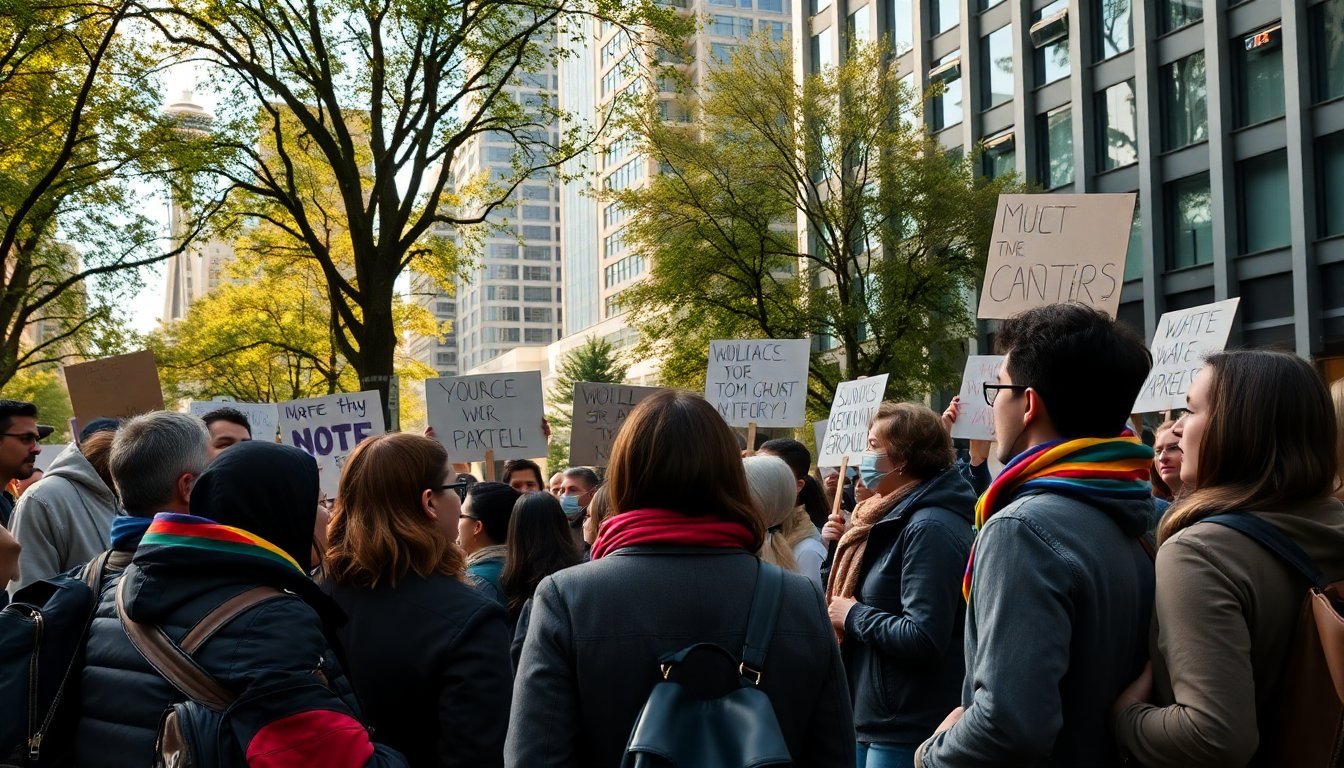Table of Contents
As the political landscape evolves in major American cities, Seattle is taking a path similar to that of New York City. The rise of progressive figures such as Katie Wilson in Seattle reflects a broader shift towards socialism that has gained traction in urban centers across the United States. This article examines the implications of this trend and its alignment with developments in New York.
The rise of progressive candidates
Katie Wilson, a self-identified activist with limited executive experience, is gaining momentum in her bid for the Seattle mayoralty. Polls indicate she is leading incumbent Bruce Harrell, signaling an ideological shift within the city. Similar to Zohran Mamdani in New York, Wilson is part of a movement driven by younger activists who regard traditional capitalism as a source of societal problems and advocate for government intervention as a solution.
Poll results and public sentiment
Recent surveys conducted by DHM Research show Seattle voters are increasingly open to supporting socialist and progressive candidates. Wilson’s potential victory could represent a significant transformation in the political landscape. Additionally, other leftist candidates are expected to secure key positions, further solidifying the influence of socialism within city government.
Comparative analysis with New York’s political climate
The political dynamics in Seattle mirror the coalition that Mamdani has built in New York, where the Democratic Socialists of America (DSA) have successfully challenged the traditional Democratic establishment. This shift has led to a redefinition of policies prioritizing taxation and government ownership over private interests. Both cities have adopted slogans like “Tax Amazon!” and “$15 now!” that encapsulate a growing demand for economic equality.
Policy proposals and their implications
Wilson’s platform includes a proposed $1 billion housing bond and an emphasis on public ownership of utilities, echoing Mamdani’s calls for wealth redistribution. While her rhetoric may be more moderate compared to her New York counterpart, the underlying ideology remains intact. The initiative to treat private property as a communal concern challenges long-held American values regarding ownership and personal rights.
The risks of a leftist governance model
Critics caution that a shift towards a more left-leaning governance model could have negative consequences, as evidenced by New York’s experience under Mamdani’s influence. Businesses may relocate, housing development could stagnate, and welfare dependency may rise. In Seattle, over-taxation and a declining downtown area have already contributed to a public safety crisis.
Wilson’s lack of administrative experience raises significant concerns. Her reliance on parental support for living expenses, while relatable, does not inspire confidence in her ability to manage a city budget exceeding $9 billion. There is apprehension that an activist perspective may overshadow pragmatic decision-making, leading to ineffective governance.
Future implications for urban America
The momentum behind progressive candidates like Wilson indicates a broader shift in urban America, where traditional governance centers are increasingly influenced by activist movements. As voter engagement wanes, it is often the most ideologically driven individuals who dominate the political landscape. This trend raises concerns about potential higher taxes and declining public safety as cities adopt socialist policies.
The upcoming elections, particularly Seattle’s decision on November 4, will serve as a critical juncture. The stakes are high, as voters must choose between a pragmatic approach to governance and a movement rooted in ideology. Should Wilson win, the ramifications will extend beyond Seattle, potentially affecting political discourse nationwide.
Seattle’s political trajectory is not merely a local story but a reflection of a national trend towards socialism in urban governance. As cities like Seattle and New York experiment with these radical ideologies, the outcomes may set precedents that resonate throughout the country, challenging the fundamental principles of American governance.


